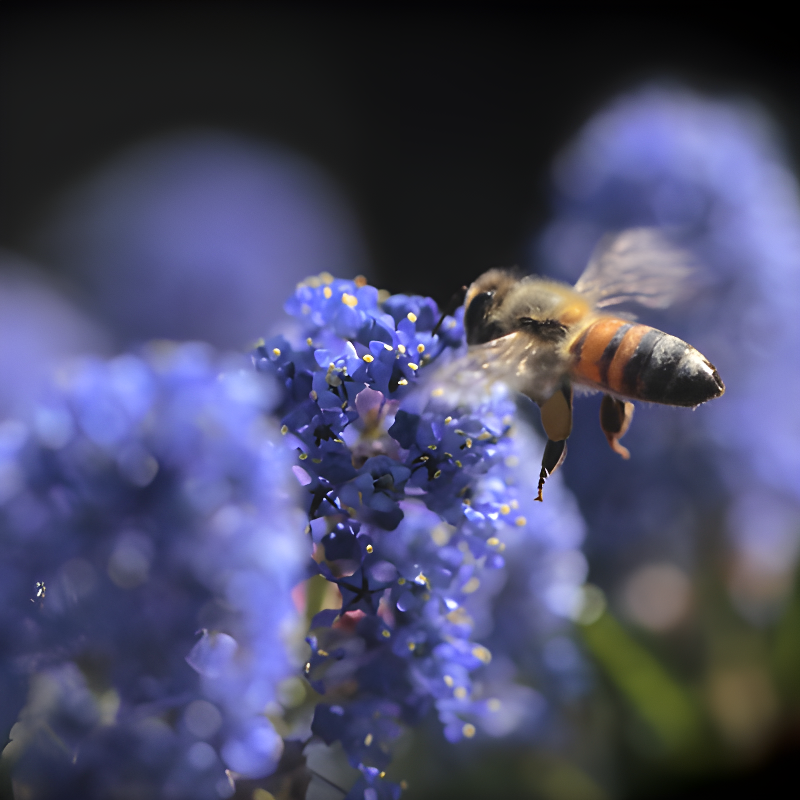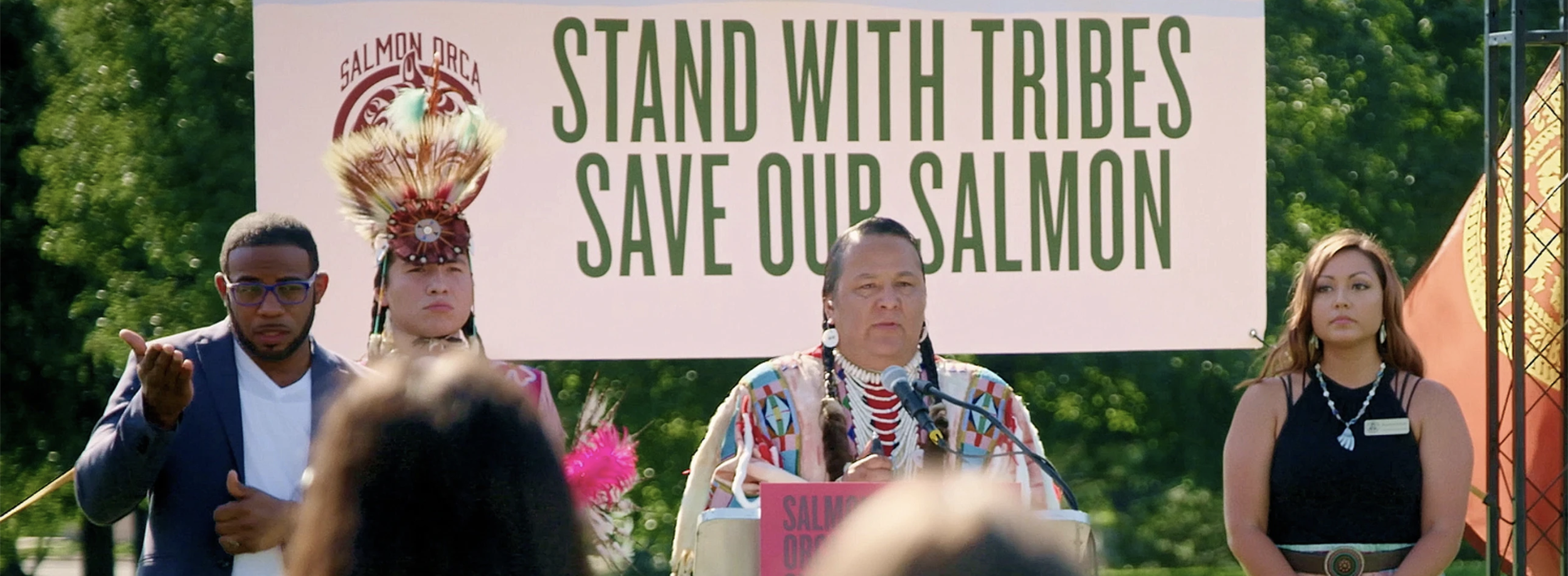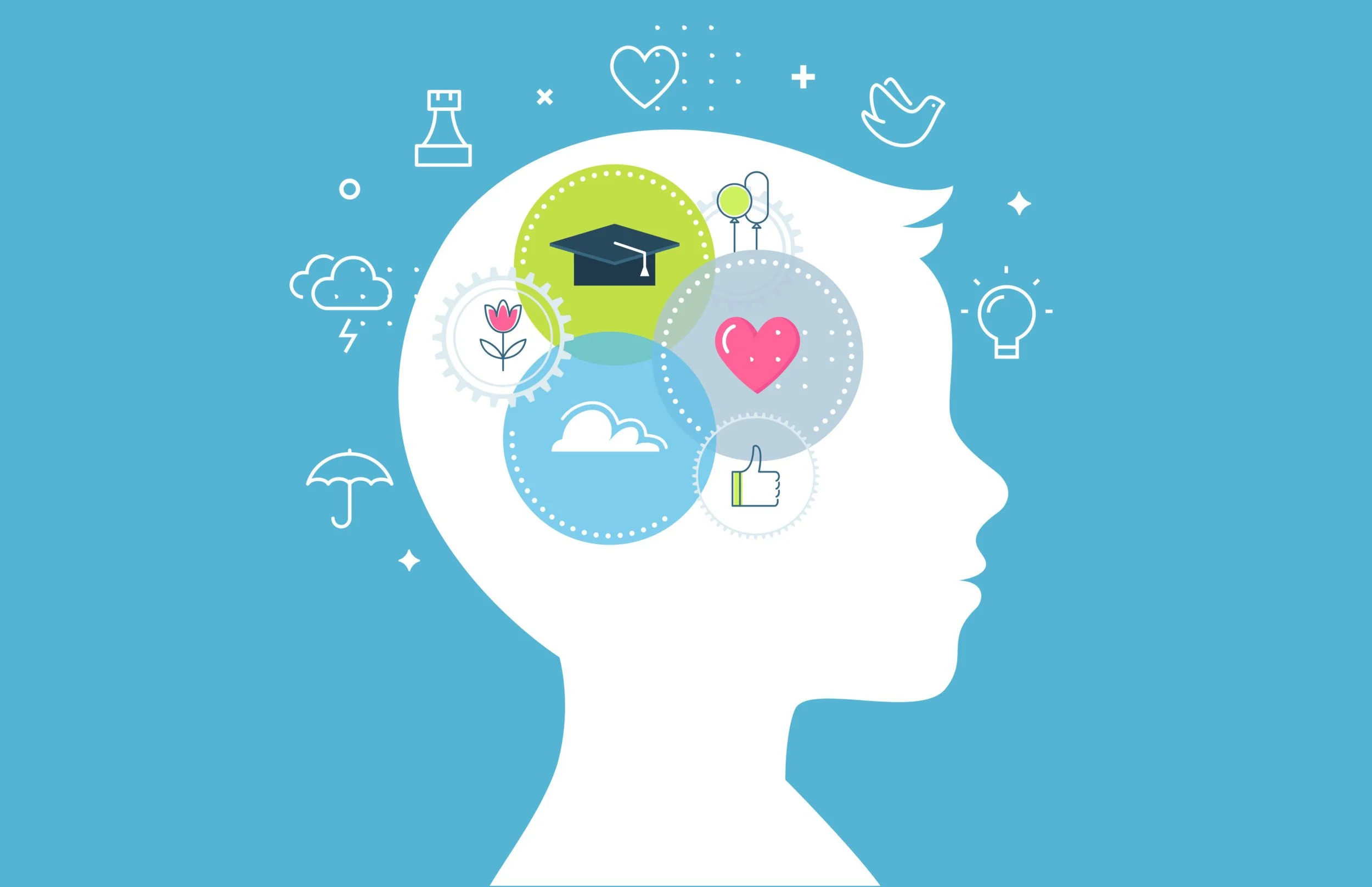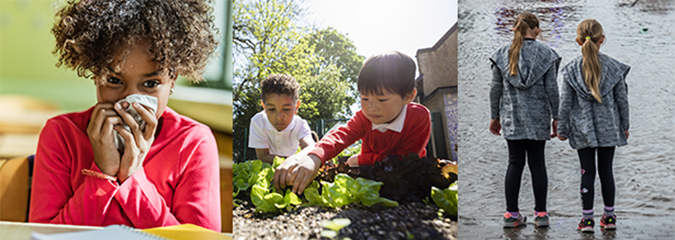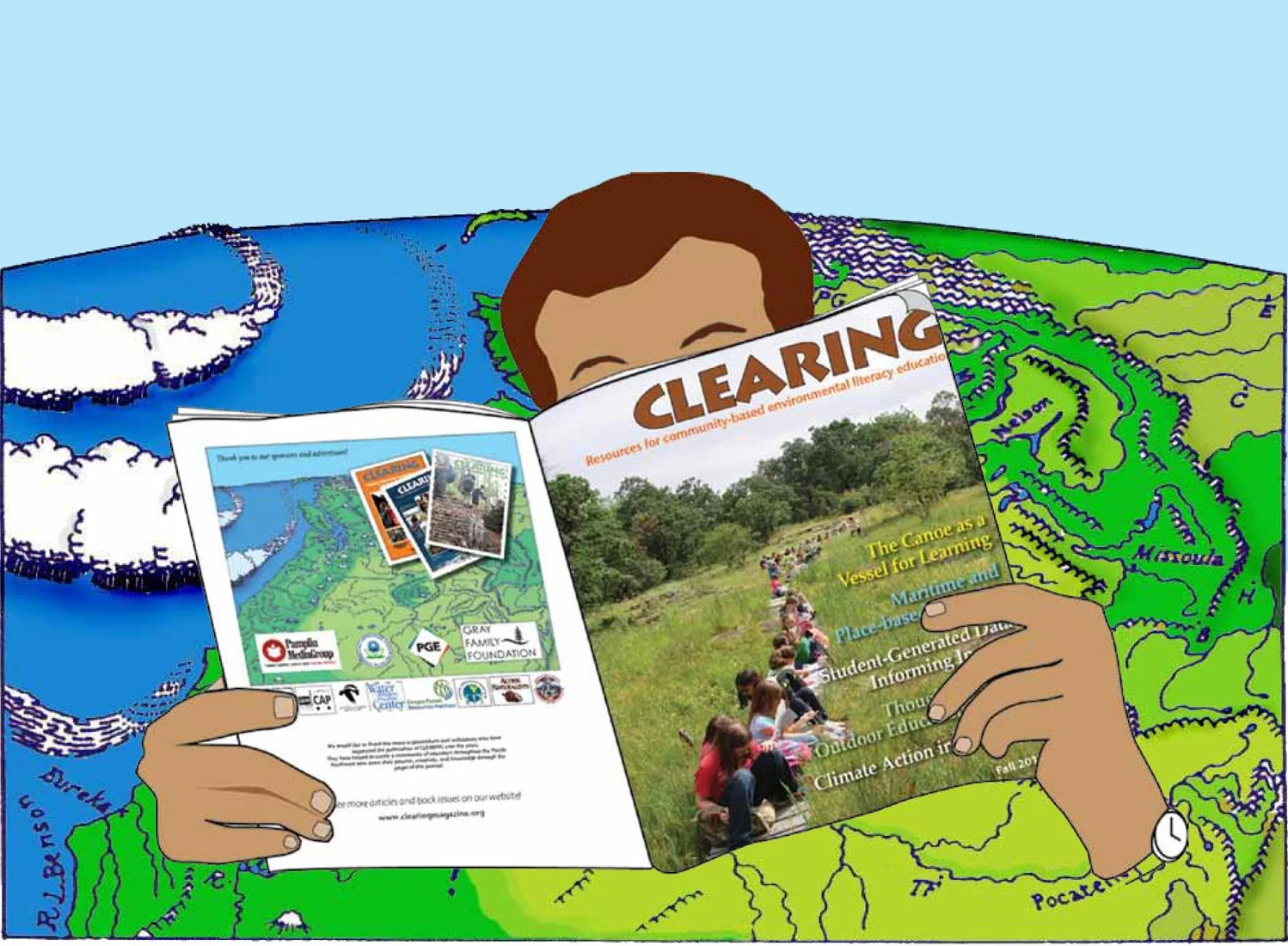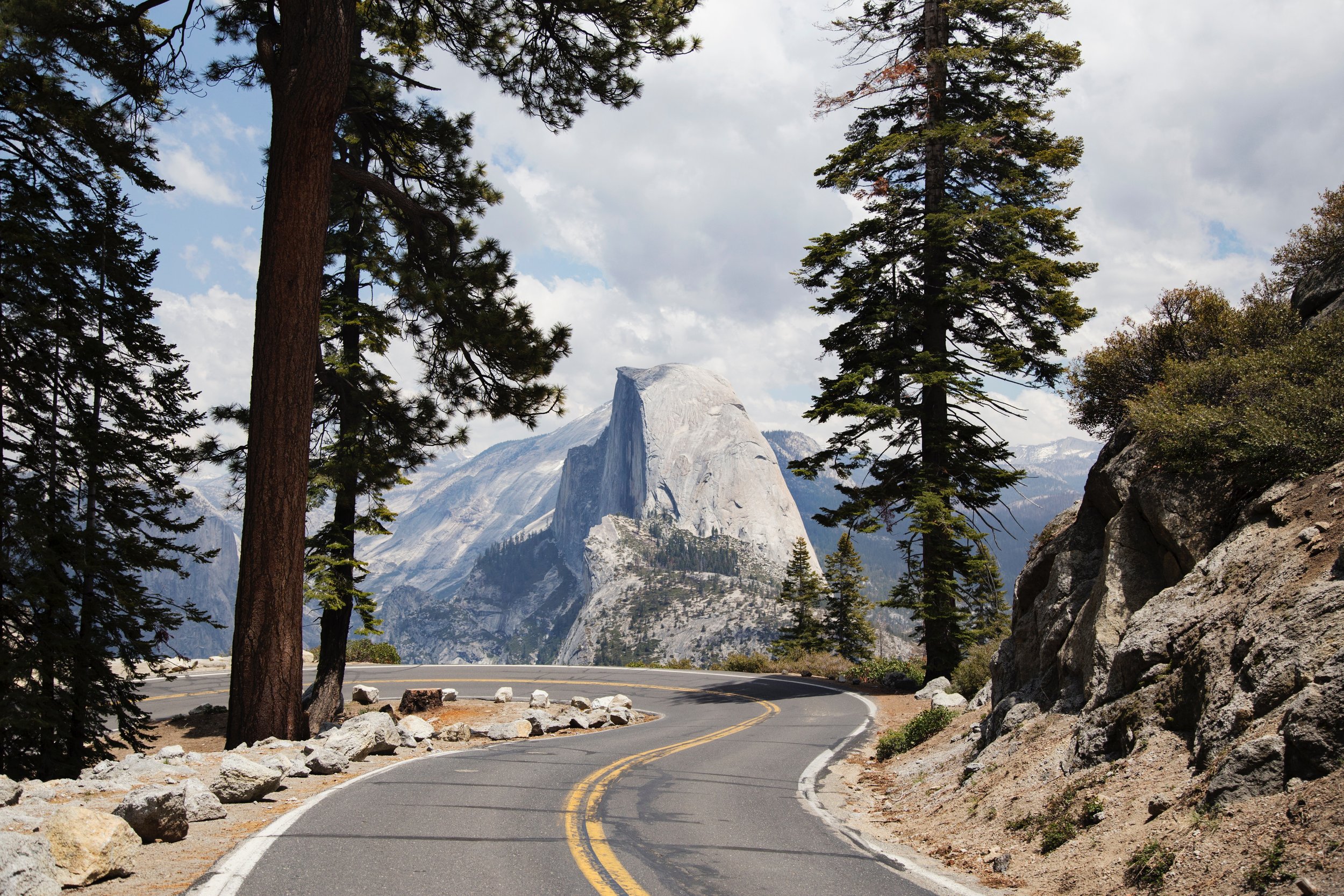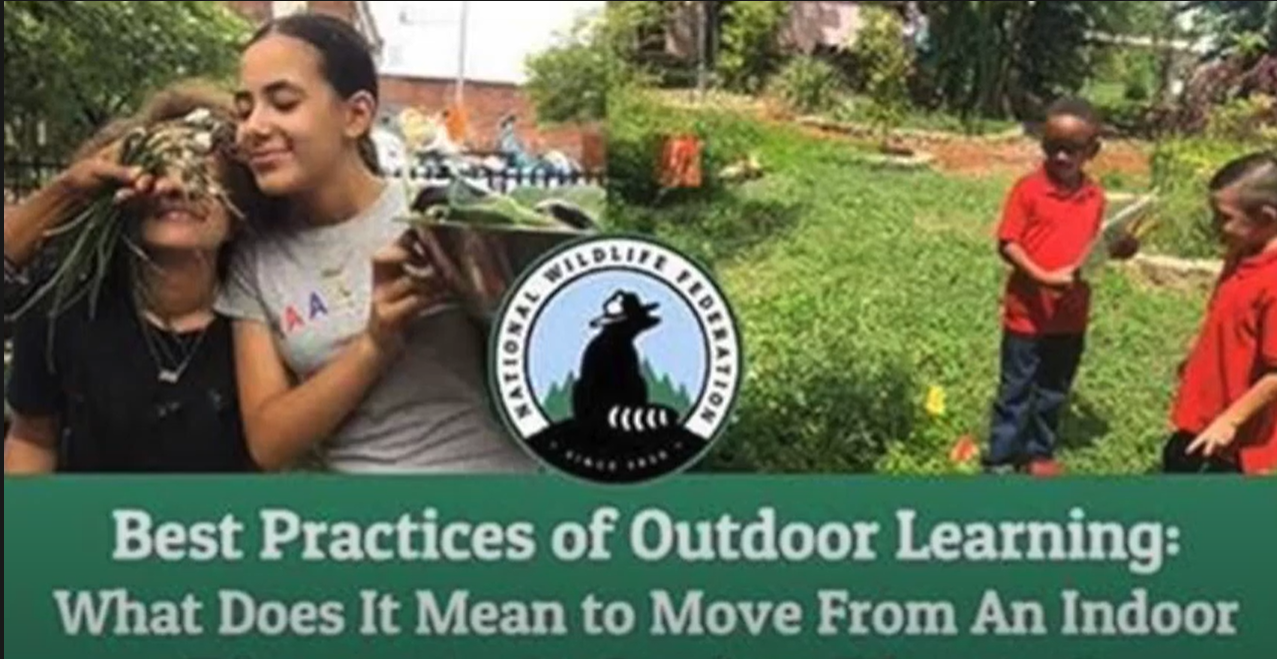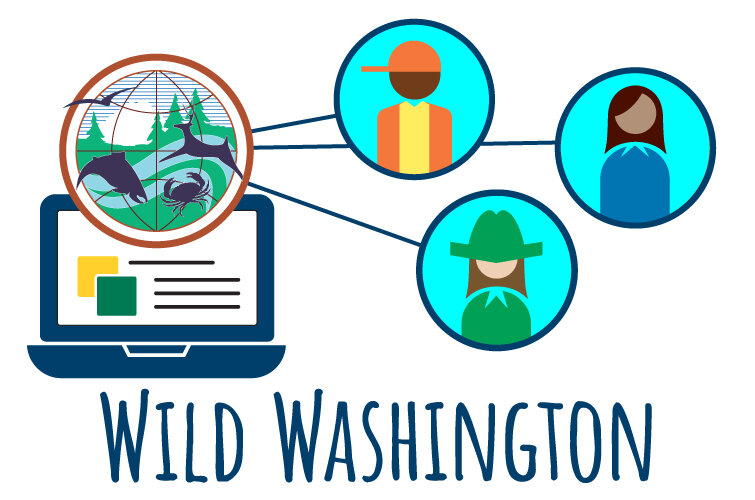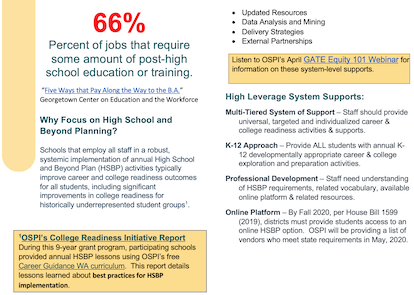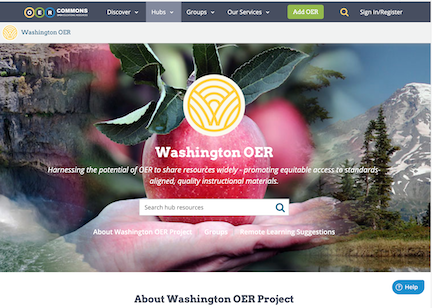Environment and Sustainability Resources
Washington State's Office of Superintendent of Public Instruction (OSPI) is offering support for educators and families during school closures, and hybrid learning models through their Novel Coronavirus Guidance and Resources Pages. Be sure to also visit the OSPI folder for Environment and Sustainability Education.
Also, check out the E3 Washington Professional Development page for online classes and webinars.
E3 Washington is hosting pages with at-home and outside lessons:
Engage Students With Pollinator Activities for World Bee Day
Engage students in learning about the vital role of bees and other pollinators with these engaging activities for World Bee Day. From exploring the bee life cycle to creating pollinator inventions, these hands-on projects cater to various grade levels and learning styles. Find Project Learning Tree’s blog post here.
U.S. EPA Environmental Education Program
Visit https://www.epa.gov/education to learn more
Add Your Organization to Environmental Learning Map!
The Washington Office of Superintendent of Public Instruction (OSPI) Environmental and Sustainability Education program and E3 Washington, the state affiliate of the North American Association of Environmental Education (NAAEE) are collaborating to build a map of Environmental and Sustainability Education (ESE) providers and associated resources.
Access the instruction PDF here.
Upstream, Downriver (Film)
"Upstream, Downriver" takes viewers into the heart of the battle for water justice. Powerful stories with frontline community activists are interwoven with historical context about landmark regulations that significantly reduced water pollution in the U.S. but failed to serve disadvantaged communities that are hardest hit by today’s climate crisis. learn more and Watch the trailer here.
Steam Education for Climate Literacy
We are happy to announce the fourth year of an inter-agency partnership to offer professional development and clock hours. The 2024 STEAM Education for Climate Literacy series is from the environmental educators at Pierce Conservation District, Pierce County, City of Tacoma, and Tacoma Public Utilities. We are each offering a class with local ties to Tacoma and Pierce County and our systems in relation to climate change.
You have two opportunities to attend each 90-minute virtual class on Zoom, Wednesday evenings or Saturday mornings in February/March. We will not record these classes.
Educators register here: https://app.smartsheet.com/b/form/f9539255394742a0932722d68ecab169
NOAA Planet Stewards
NOAA Planet Stewards provides all educators working with elementary through college-aged students access to opportunities and resources enabling them to build up scientifically literate individuals and communities, and preparing them to respond to environmental challenges.
NOAA Planet Stewards also supports educators’ efforts to implement hands-on action-based projects that conserve, restore, and protect human communities and natural resources from environmental challenges.
Academic Learning is Social and Emotional
OSPI has launched a new SEL (Social Emotional Learning) opportunity for Washington’s education professionals called Academic Learning is Social and Emotional. It is an online course that you can take at your own pace and earn 3 free clock hours. This self-paced, interactive course and supporting resources will help educators build their knowledge and skills to use SEL practices in their classroom instruction. This course will prepare educators to use SEL practices that focus on equity and supportive classroom environments to improve their students' classroom experiences. All three sections and the final quiz must be completed to receive clock hours.
Climate Change and Children’s Health and Well-Being in the United States Report
Our climate is changing, and the health and well-being of children will continue to be affected in many ways. Children are uniquely vulnerable to climate change due to a variety of physical, cognitive, behavioral, and social factors. Climate change-related impacts in childhood can have lifelong consequences due to effects on learning, physical health, chronic disease, and other complications.
Paper Craft Ideas for Hispanic Heritage Month
Make your own art, games, and instruments using recycled paper and cardboard!
Use these fun, hands-on kids craft ideas to highlight the diversity and beauty of Hispanic culture around the world and celebrate National Hispanic Heritage Month and Latino Conservation Week.
CLEARING Magazine
An online and print magazine for Environmental literacy education in the pacific northwest and cascadia bioregion. an e3 washington member benefit is a mailed copy of cLEARING magazine. interested in this member perk? become a member today.
Cerebral Palsy Special Education
Education is one of the most important aspects of development for children with cerebral palsy. While public and private schools are the main cerebral palsy special education options, there are many other cerebral palsy education resources parents can choose from. With the proper resources, you can ensure your child thrives in the classroom and beyond. Learn more about navigating the special education system.
EPA Invites Youth to Serve on Agency’s First-Ever National Environmental Youth Advisory Council
We can’t tackle the environmental challenges of our time without input from our younger communities, who’ve long been at the forefront of social movements,” said EPA Administrator Michael S. Regan. “This committee will help ensure that the voices and perspectives of our youth are included and valued in EPA’s decision-making as we continue to advance President Biden’s commitment to ensuring everyone in this country has access to clean air, safe water and healthy land, now and for generations to come.
Environmental Education Virtual Field Trips for Nature Lovers
The Environmental Protection Agency (EPA) believes it's vital for every child to learn about the environment. The government agency says that quality environmental education allows students to understand issues facing the environment, participate in finding solutions to these issues, and begin to take action to do their part to make the environment better. Environmental education also requires students to research issues and form their own opinion based on their research. It should help students hone their critical thinking skills and also become more involved in the world around them. Luckily, there are many resources available to aid educators in providing high-quality environmental education. Click here for outdoor opportunities for families.
EcoSchools U.S. offers a certification program for elementary through secondary schools that nurtures environmental learning and climate action. Our award-winning, curriculum-linked framework supports school communities as they assess, track, benchmark, and celebrate environmental excellence. We are the exclusive national operator of the EcoSchools program in the United States, and a member of the international network of EcoSchools, coordinated by the Foundation for Environmental Education.
Since Time Immemorial Curriculum-Spanish resources
The Office of Native Education is excited to announce that Spanish language lesson resources for the Since Time Immemorial tribal sovereignty and history curriculum are now available! Spanish language resources for most of the lessons, kindergarten through high school, are included as you navigate to lessons for your grade level. Please join us for any of our upcoming introductory webinars as we navigate through the curriculum website. The webinars are free. Additional information including webinar dates and registration information can be found on our STI Fall Training Schedule.
We appreciate your commitment and creativity to ensure educational opportunities for all of our students and wish you the best this school year. Please stay in touch with us as you share these lessons with your students. If you have questions, please contact me at laura.lynn@k12.wa.us or Joan Banker at joan.banker@k12.wa.us.
Saving the Southern Resident Killer Whales
Engaging students in real-world studies of endangered species without leaving them overwhelmed is incredibly challenging. NOAA’s unit on Southern Resident killer whales educates students on the cultural, economic, and environmental importance of this critically endangered species and gives them the tools to make meaningful changes in their school, community, and beyond.
Our Beautiful Planet
Our Beautiful Planet is a series of compelling 5-to-7-minute science films highlighting the cutting edge research that climate scientists are doing to solve some of the world’s most pressing issues.
NSTA and Kikim Media have partnered to launch these films and this collection of classroom-ready lesson plans that highlight the science and engineering practices scientists use to explain the phenomena of climate.
Students are often fascinated with the drastic environmental changes throughout the seasons, especially if you live in a place where it snows during the winter. We often associate winter with dark nights, freezing temperatures, snow, and ice. In polar and temperate zones in the northern hemisphere, the winter season lasts from December through February. Parts of the U.S. with subtropical or tropical climates may also experience temperature differences during these months, but they may only have two seasons of “wet” and “dry” or “summer” and “winter.”
No matter what kind of weather you experience during the next couple months, consider adding these STEM activities to your winter-themed lesson plans.
Collectively, America's 230 million drivers have a great impact on themselves and on our nation: How much CO2 is emitted into the atmosphere that impacts our climate. How much fossil fuel energy is consumed. The air quality and health impact. The amount of money spent in fuel use, maintenance, and repairs. And how safe we are as drivers. Green Driving America is committed to helping drivers make transportation choices that will benefit the planet and themselves.
Themed around the state’s diverse flora and fauna, Wild Washington lessons are designed to equip K-12 students with the knowledge, social, and emotional skills needed to think critically, and problem solve around natural resource issues. Activities encourage students to explore various points of view and collaborate with others to find ways to move forward on real-world challenges.
The Department is working with the Office of Superintendent of Public Instruction to ensure lesson plans best meet state and national environmental and sustainability learning standards. Lessons are developed for educators to use in the classroom or in an outdoor learning setting, and also have modifications embedded for distance learning.
The National Wildlife Federation provides educators with easy-to-implement, trusted curriculum and activities that help inspire the next generation of environmental stewards.
Browse through lesson plans and webinars designed for educating students about wildlife biology, life sciences, conservation, and more. In addition to this collection, the National Wildlife Federation's Eco-Schools USA program offers educational pathways for educators in participating schools to utilize in the classroom.
Two beautiful galleries have been created to harness the power of art to engage the public on climate change. Educators guides are available to inspire you on how to use these resources in your classroom.
Visit Here:
With NOAA’s Data in the Classroom, students use real-time ocean data to explore today’s most pressing environmental issues, and develop problem-solving skills employed by scientists. Access online and classroom-ready curriculum activities with a scaled approach to learning and easy-to-use data exploration tools.
Whether it’s your first time or 100th time in the outdoors, an essentials checklist is a great way to make sure you’re prepared. This list is comprehensive, while not specifically geared toward educational settings or hiking with children. Please consider the needs of your entire group, the developmental appropriateness of some of these items, and use this list to make your own educators checklist.
Students from 7-12th grades are encouraged to prepare for their future careers. The High School & Beyond Plan revolves around three questions: Who am I?, What can I become?, and How do I become that?
The High School & Beyond Plan, a graduation requirement, helps students get the most out of high school and think about their future. Check out the tools for families, students as well as Green Job opportunities.
Consider also visiting Washington Career Bridge to expand your research.
This early childhood learning group under NAAEE, supports educators and parents who want to connect kids with their natural world. Subscribe to their newsletter to read a story that explores how nature-based educators can reconnect with their purpose while staying in touch with students, learn how a roaming forest school designed an insurance policy that meets their needs, stay up-to-date with the latest happenings in the field by reading a summary of our COVID-19 forums, browse jobs, and more!
Explore the North American Association for Environmental Education (NAAEE) EE Pro resources. Join for free. Check out upcoming professional development, group conversations and more. EE Pro features a host of past professional development webinars: Including Communicating during COVID-19- Tips and Strategies for the Environmental Education Community, Environmental Education and Indigenous Knowledge, and Fostering Collaborations and Engaging Communities using NAAEE’s Guidelines for Excellence.
The STEM Teaching Tools site has tools that can help you teach science, technology, engineering and math (STEM). We are currently focused on supporting the teaching of the Next Generation Science Standards (NGSS). Each tool is focused on a specific issue and leverages the best knowledge from research and practice. Under the News section, you can learn a bit more about how you might use them. Review more resources in our Tools area and check out the online "short courses" shown below.
Check out the Supporting Students’ Science Learning in the Era of COVID-19.
Also, you can direct your own learning through their PD Modules tools and webinar.
Harnessing the potential of OER to share resources widely - promoting equitable access to standards-aligned, quality instructional materials. Be sure to also check out their rich collection of K12 Online Resources.
HIGH-QUALITY PROFESSIONAL DEVELOPMENT
Enhance your teaching skills and become comfortable teaching outdoors – in urban, suburban, or rural environments. Receive multi-disciplinary, hands-on lessons aligned with state and national academic standards. Put the materials to use right away in your own classroom, playground, or nature center.Project Learning Tree is offering 50% off on online workshops for at least April 2020.
Visit the PEI website for FieldSTEM resources, as well as the websites of our statewide partners ClimeTime. The PEI Teaching Resources section has teaching guides, English language arts performance tasks, storylines and more…
One example from this comprehensive list is Beetles Project. If you've ever wondered how to engage your kids anywhere outdoors, Beetles Project has resources and activities to help you. For example, Blending In and Standing Out is a great way to help your little scientists explore camouflage as they hunt for different colors as they walk.
Geographic Information Systems
Educators across our state are online teaching and learning skills to bring the classroom to students in new ways due to the governor's directive to "Stay Home and Stay Safe". Using geographic information systems (GIS) to teach environmental literacy provides a visual and place based emphasis on environmental topics that are critical in our communities. This citizen science approach integrates into other disciplines as well. One example of GIS projects is Trash Cache, where students use the software to build a web based survey and collect results about their communities waste habits. This project is part of the GeoProjects offered by Esri through ArcGIS online. If you're new to GIS, below are several other links to get you started in GIS education for your at home students, your classroom or your programs.
Prebuilt online learning plan: Get to Know GIS for Secondary Students (6.25 hours)
Semibuilt online activities: GeoInquiries (20–30 minutes each)
Prebuilt online short course: ArcGIS Online Basics (2 hours)
Semibuilt online activities: Teach with GIS (variable times).
Explore this collection of nearly 200 learning activities that use ArcGIS Online. Some activities require an ArcGIS Online login.
Wide open: GeoProjects. Build a class data collection project to which students can submit data—allowing students to explore a range of research questions from the safety of their own home. This resource also includes links to short courses on several field data collection apps from Esri.
Do you teach geoscience online? Are you making a rapid transition to teaching geoscience online as a result of your institution's response to COVID-19? Online classroom environments offer unique ways of teaching and interacting. Online classrooms also have unique challenges and require specialized strategies for success. These challenges can be particularly acute for geoscience courses with laboratory and field components. Join a new community of geoscience educators focused on teaching their students in online environments. Ask questions, share experiences, and find resources that meet the needs unique to educators teaching geoscience online.
Justice, Equity, Diversity and Inclusion (JEDI) Teaching
Increase the equity in your classrooms or professional meetings with Liberating Structures. These habits make the most of every opportunity to meet and gather by using liberated facilitation techniques that do not perpetuate patriarchy and capitalism.
Yale Climate Opinion Maps
from NAAEE EEPro resources by Karen Hollweg June 11, 2018
Now you can go to Yale Climate Opinion Maps and see how the people in your town, county or Congressional District think about Climate Change! At the top of the map, you can select from a drop-down list the question you want to see displayed – for example: Whether schools should teach about global warming, whether people trust climate scientists about global warming, or one of many other questions. The display will then show both the results for your area and how that compares to the national average. It’s a great tool for learning about the views of the residents in your area, and is very easy to use! Think about the value of this data in working with Administrators or other decision-makers! Students could also find it interesting to explore differences in your state and across the country.
The Yale Program on Climate Change Communication has just won the Warren J. Mitofsky Innovator's Award from the American Association for Public Opinion Research (AAPOR), the leading organization of survey researchers in the U.S., due to the cutting edge nature of their work. You’ll be amazed at the amount of information that’s displayed and how easy it is to access.
Please share with a post on NAAEE eePro how you are using this data so that we can all learn from your work!
School gardens
School gardens are a great tool for environmental education. If you're thinking about ways to routinely get your class outside, consider a school garden.
Benefits of School Gardens
Encourages healthy eating
Provides physical activity
Helps instill an understanding of where food comes from
Can be used to reinforce classroom learning
Provides opportunities for inter-generational and cross-cultural connections
May also serve as a neighborhood asset during the summer months
The links below are filled with great resources to plan your school garden in time for spring.
Collective School Garden Network
Washington Farm To School Toolkit
Washington Green Schools Program
WSU Extension Master Gardener Program
Institute for Systems Biology new STEM Systems Thinking Resources
A video interview series with STEM professionals from a wide range of STEM and healthcare careers.
On your own or connected to SEE's instructional materials, you will learn:
How systems thinking plays a role in all STEM career pathways...
What skills are needed in different STEM fields...
How YOU can be a systems thinker...
Check out the video tours of Yes and Nuturing Roots farms or check out the STEM interviews. Accompanying curriculum coming soon.
Youth Outdoor Policy Playbook
NAAEE partnered to contribute to the playbook to share the knowledge and experience of outdoor engagement and education champions to drive new, innovative ideas. The policy and investment recommendations reflect the understanding that the health of children and families, social and environmental justice, and the health of the natural world are inexorably linked. Playbook users will benefit from:
A framework of guiding principles for effective policy initiatives
Expertly curated research that helps make the case for youth outdoor engagement
A library of successful and emerging policy initiatives that connect kids with nature and support environmental education
Opportunities for cross sector leaders to connect.
Environment & Sustainability
Education Resources
Healthy Sounds
Guernica magazine highlighted the short-film (7 min) Sanctuaries of Silence by Gordon Hempton. It is set in Olympic National Park and focuses on soundscapes of the rainforest and coasts. This would be a great piece to use for a discussion about noise and its role in our life, or to relax students (or you!). If you have the technology, you can view this film in 3D. Otherwise, it works well in 2D
Primary Sources: Environmental Journalism Sources
by Lisa Eschenbach
Maybe you want to read up on environmental issues in Washington State…or, maybe you’re looking for good articles for your students. I’ve got a few recommendations.
EarthFix
EarthFix is a collaboration between Washington and Oregon public radio and television focused on environmental stories. Their currently articles are about fires in the west, new wolf pups born in the Oregon Cascades and how climate change could encourage crop consuming insects. Some of these articles come with accompanying video or audio clips.
Northwest Indian Fisheries Commission
Check out the Quarterly Magazine for great short articles. Your students can read about current tribal fisheries and natural resource management. The Summer 2018 magazine had an article on the Elwha Dam restoration project, using drones to survey streams and trapping non-native green crabs.
Newsela
This site features news on a wide array of topics. Articles can be adjusted for different reading levels. I searched for Pacific Northwest and found articles on the Cascade Butterfly Project, plans to protect orca whales, and the geology of Mount St. Helens. You can also search by reading level or text level. They also have articles in Spanish.
Enjoy your reading.
Washington State has Adopted New Rules on Student Discipline
Increased emphasis is placed on lowering overall discipline rates. OSPI resources point out that "Recent Research shows that teacher-student relationships are key to mitigating behavior issues while reducing racial gaps in discipline referrals." They also identified the importance of culturally relevant teaching.
Positive Discipline approaches include:
Teach, model and reinforce expected behaviors
Developing classroom procedures
Relationship development
Active supervision
Behavior specific praise
Pre-correction
Correct misbehavior in private
Increase opportunities to respond
Restorative practices
Collaborative problem-solving
Function based thinking/ assessments
Engaging students through positive relationships improves teacher and student experiences.
STEM Teaching Tools: A Rich Collection
The University of Washington's Institute for Math + Science Education with support from the National Science Foundation has created a repository of Resources to support STEM education with a focus on NGSS, Equity and Pedagogy. There are over 30 subjects covered ranging from Field Investigations, Building on Indigenous Knowledge and the role of informal science education.
Each topic includes recommended actions you can take.
#12 Climate Change: Recommended Actions You Can Take
Review the Global Climate Change Core Idea (ESS3.D) from the NRC Framework...
Engage students in citizen science projects like the National Phenology Network...
Have student develop arguments around multiple lines of evidence, including data from predictive climate models...
Use a systems-based approach to teach the large-scale cause and effect dynamics of climate change science...
NEEF: Apps for Outdoor Activity
A supplement to the Get into Nature for Better Health brochure, NEEF’s Apps for Outdoor Activity lists 10 free apps, providing children and their families ideas on where to go and what to do outdoors.
NEEF: Children and Nature Infographic
NEEF's Children and Nature Infographic in English and Spanish offers a visual display of the current state of children and nature and how being active in nature can lead to improved health outcomes.
NOAA and National Wildlife Foundation Climate Change Education
Thanks to Governor Inslee and the Washington Legislature, our state is embarking on a unique climate education initiative. Check out the new NOAA New Toolbox for Teaching Climate & Energy. Check out:
National Wildlife Foundation Eco-Schools USA (Step 2).
Climate Classroom Kids is under (Step 5).
An Inconvenient Sequel: Truth to Power Education (Step 5).
NWF EcoLeaders and GreenForce Initiative (Step 5)
Enter the School Climate Solutions Challenge (Step 6)
Looking for High Quality Environment and Sustainability Lessons?
Have you visited the new OSPI Department of Environment and Sustainability webpage? Not only is Rochelle Gandour-Rood leading excellent regional meetings (upcoming in Mukilteo and Vancouver), but she and the OSPI team have compiled great local resources for Washington Educators in and out of classrooms. We especially appreciate storytelling master Roger Fernandes' stories with science lesson tie-ins. You can also find the course framework for the Sustainable Design and Technology Course.
Visit the OSPI Environment and Sustainability Page
We also recommend you visit the Native Education page for more resources including the Since Time Immemorial: Tribal Sovereignty curriculum. Learn how you can connect with your local tribe. We know students succeed better when they see themselves in our stories: about natural resources, environmental stewardship, business management and community leadership.
Visit the Native Education Page
Want more? Expand your search with the NAAEE national resource clearninghouse EEPRO.
Western Washington University Releases
Sustainability Action Plan
Western Washington University has released its Sustainability Action Plan, which will serve as the university’s roadmap for protecting local and global ecology, upholding social equity, creating economic vitality, and maintaining human health.
“The completion of the Sustainability Action Plan is a milestone in Western’s commitment to sustainability. It not only advances a vision for how all members of the Western community can embrace and implement sustainable practices, it expands our thinking about how sustainability is connected to other important Western values, including social justice,” said Western President Sabah Randhawa. For more information, go to: Western Today
Adults and children differ in where they locate unforgettable, authentic nature
A new study by the Nature of Americans has found that:
"For children, nature is located quite literally right out the door. Special places outdoors and unforgettable memories often consist of back yards or nearby woods, creeks, and gardens. Adults also describe nature as consisting of the trees, beaches, animals, flowers, and lakes near where they live. But in contrast to children, adults tend to set a high and even impossible standard for what they perceive to be “authentic” and “pure” nature, believing that it requires solitude and travel to faraway places, which reinforces their perceptions of the inaccessibility of nature...
Furthermore, we suggest that programs use overlapping interests between children and adults to promote inter-generational participation, leveraging our finding that children learn about and experience nature most often with a family member."
Check out the rest of this and other studies.....
Powerful New Study Shows EE Teaches on Many Levels
"There is a mountain of evidence that suggests
EE is a powerful way to teach students. Over 100
studies found that it provides transformative
learning opportunities. There is no doubt that
environmental education is one of the most
effective ways to instill a passion for learning
among students.”
Dr. Nicole Ardoin, Stanford University Graduate School of Education and Woods Institute for the Environment
Dr. Ardoin's study found that in addition to environmental literacy and academic skills, students gain:
emotional and social skills
environmental stewardship
engagement or motivation in learning, and
civic interest and responsibility.
98% percent of the 100 studies she examined found increased academic achievement as a result of environmental education. When students look at real-life problems through environmental education, they also develop critical thinking and communication skills.
Download the full article through eeWORKS, a program of NAAEE, Stanford, and other partners.
And, Search the BirdNote Archives
BirdNote has more than 1,400 shows archived on their website. You can search to find 2-minute shows about birds and their lives —learn more about the Northern Flicker, Bald Eagle, or Swainson's Thrush.
Climate Change, Ocean Acidification + Art + Craft
For the past 10 years, sisters Margaret and Christine Wertheim have been leading a collaborative crochet project to build visual models of healthy and unhealthy coral reefs.
The sisters Wertheim weave science and math into their dynamic crochet coral reef exhibits.
Check out Margaret's TED talk on the project: Here
Place-Based Education by Getting Smart
Find more at Get Smart
Project Based Education
We know our environment needs innovative, collaborative and creative solutions.
There is no end to the work students can do to improve our environment. For example, students monitor energy usage in schools, they decrease food waste, plant gardens, restore native ecosystems and collect ecological data.
Check out Washington Green School school projects to "green" your school.
And, find helpful teaching Resources such as the Pacific Education Institute's
Project Based Learning Model or Designing High-Impact Field Experiences
Recommend other resources by writing a blog for E3: send to leschenbach@e3washington.org.

